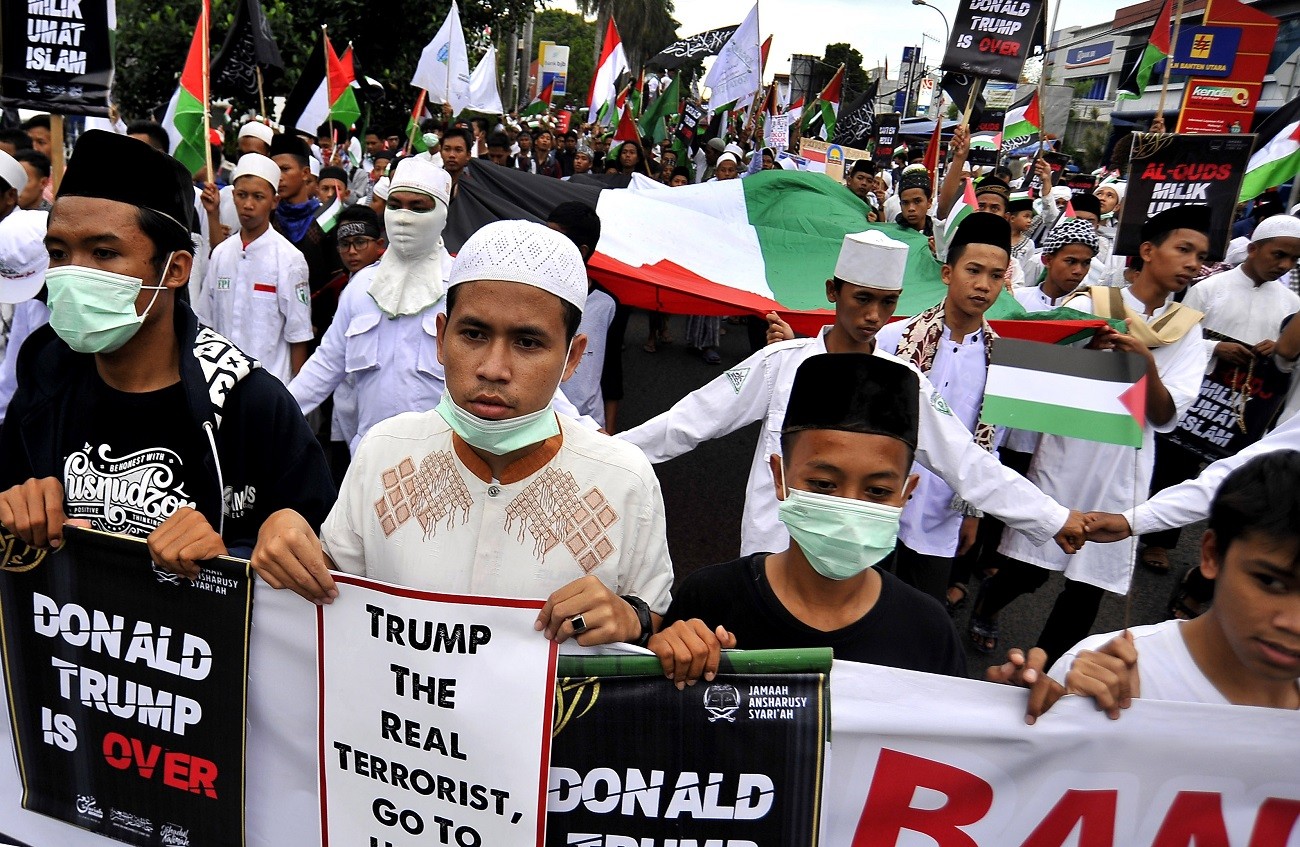Popular Reads
Top Results
Can't find what you're looking for?
View all search resultsPopular Reads
Top Results
Can't find what you're looking for?
View all search resultsFormal Israel ties even less likely after U-20 fiasco
Change text size
Gift Premium Articles
to Anyone
T
he public’s consistently strong stance against Israel, as evidenced by the recent removal of Indonesia as host of the U-20 FIFA World Cup, was an indication that a formal tie between the two states was a nearly impossible prospect, experts said.
The analysis, given amid reports from earlier this month that Israel had ramped up its efforts to convince Indonesia to sign the Abraham Accords, added such agreements would put Jakarta at risk of great political chaos.
On Thursday, FIFA officially removed Indonesia as the host of this year’s U-20 World Cup, following a wave of protests from grassroots organizations to public officials claiming any permissiveness toward the Israeli team entering Indonesia would go against Jakarta’s long-standing foreign policy of supporting Palestine’s independence.
Upon the sudden vacuum in host position, some countries expressed their readiness to replace Indonesia, with the latest being Argentina, which submitted a formal bid on Friday.
FIFA’s decision, which will likely be followed up with a list of sanctions to Jakarta for violating its commitments, came only a few weeks after several media outlets in Israel reported Israel was negotiating with four countries including Indonesia to expand the 2020 Abraham Accords normalization agreements.
According to the reports, the negotiations were mediated by some of the United States’ top officials, including US Secretary of State Anthony Blinken.
First spearheaded by former US president Donald Trump, the Abraham Accords sought to normalize diplomatic ties with Israel. While others like the United Arab Emirates (UAE), Bahrain and Morocco signed the accord, Indonesia firmly made it clear from the get-go that it will remain a staunch ally of the Palestinian struggle and will not cave.
Yon Machmudi, a scholar from the University of Indonesia’s Center for Middle East and Islamic Studies, said there were many incentives for the Israeli government to try to convince Jakarta to sign the accord, explaining that given Indonesia had the world’s largest Muslim population, its endorsement would be more-than-strategic for Israel.
“Indonesia’s agreement would change the constellation of support toward Palestine and send strong signals of endorsement for Israel. That would be highly sought-after and possibly tick off the majority of Israel’s foreign lobbying tasks,” Yon told The Jakarta Post on Friday.
Strong grassroots
Jakarta’s unwavering support for Palestine, the experts said, was influenced both by religious sentiments as well as by Indonesia’s robust history of nationalistic solidarity against colonization. Such support, they added, had always been strongest and most consistent at the grassroots level.
So unmoved was the stance that any signaled changes could culminate in a political crisis, they said.
“Any government daring enough to change Indonesia’s stance on Israel would risk its very legitimacy,” said Siti Mutiah Setiawati, a Middle East expert from Gadjah Mada University (UGM) to the Post.
While Indonesia would not likely sign the Abraham Accords in the foreseeable future, Siti added that by no means had there been no informal engagements between the two countries. The fact was, she said, there were some Israel-based businesses thriving in Indonesia, on top of quiet cooperation in the fields of economy, security and military.
“But the economic benefits of cooperating with Israel are not anywhere near profitable enough to risk the political instability a formal diplomatic relationship would bring,” Yon suggested.
It was quite likely Israel’s lobbying efforts for the accords would have been made through “multiple channels”, Yon suggested, including by opening dialogues with Jakarta’s economic sectors or seeking the UAE’s diplomatic aid.
“The government is composed of many elites with different perspectives. Politically, Indonesia is solid in its stance. That includes the Foreign Ministry. But when it comes to trade, culture and apparently sports, sometimes it is not always set in stone,” he said.
Bagus Hendraning Kobarsyih, the Foreign Ministry’s Middle East director, told the Post on Wednesday there had not been any recent dialogues with the Israeli government about the Abraham Accords, underlining Indonesia would not formally engage with Israel any time before Palestine’s independence.
“There has not been any dialogue nor anything as such. That reports were emerging saying otherwise is most likely a media-framing stunt by Israel,” he asserted.
Diplomatically, engaging in a formal relationship with Israel would not do Jakarta any good, Siti said, adding strong support of Palestine had always been a mark of Indonesia’s foreign policy as a member of the global south.
“We cannot be swayed from making ourselves clear that we stand against colonialism. We cannot be told otherwise by foreign actors,” she said.
“And, at this point, we are quite comfortable with informal cooperation. So why formalize it?”










